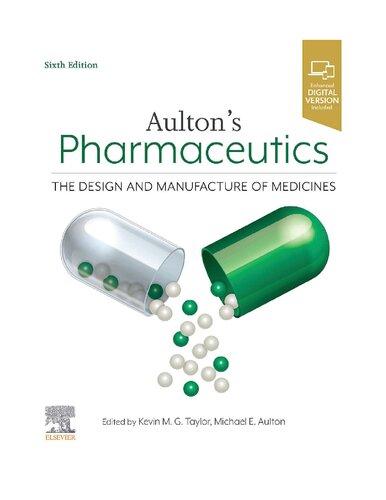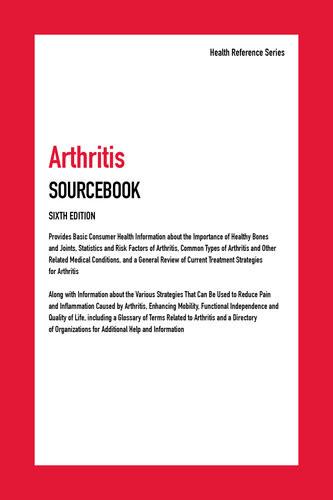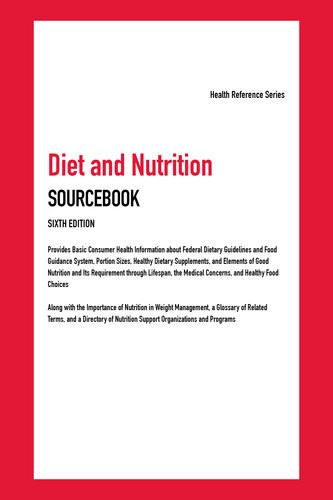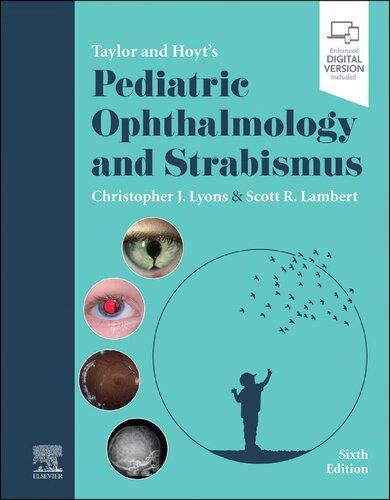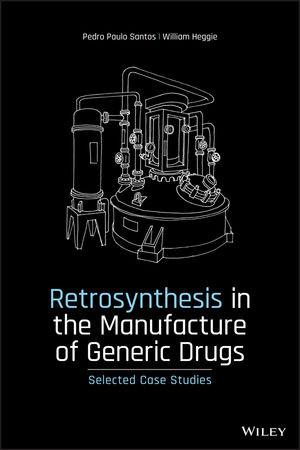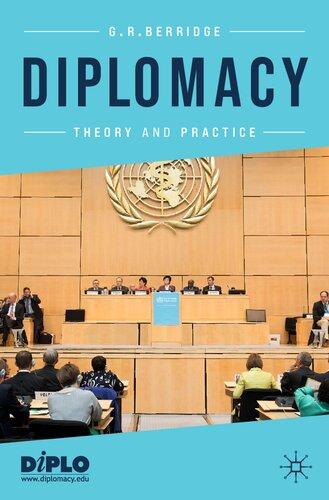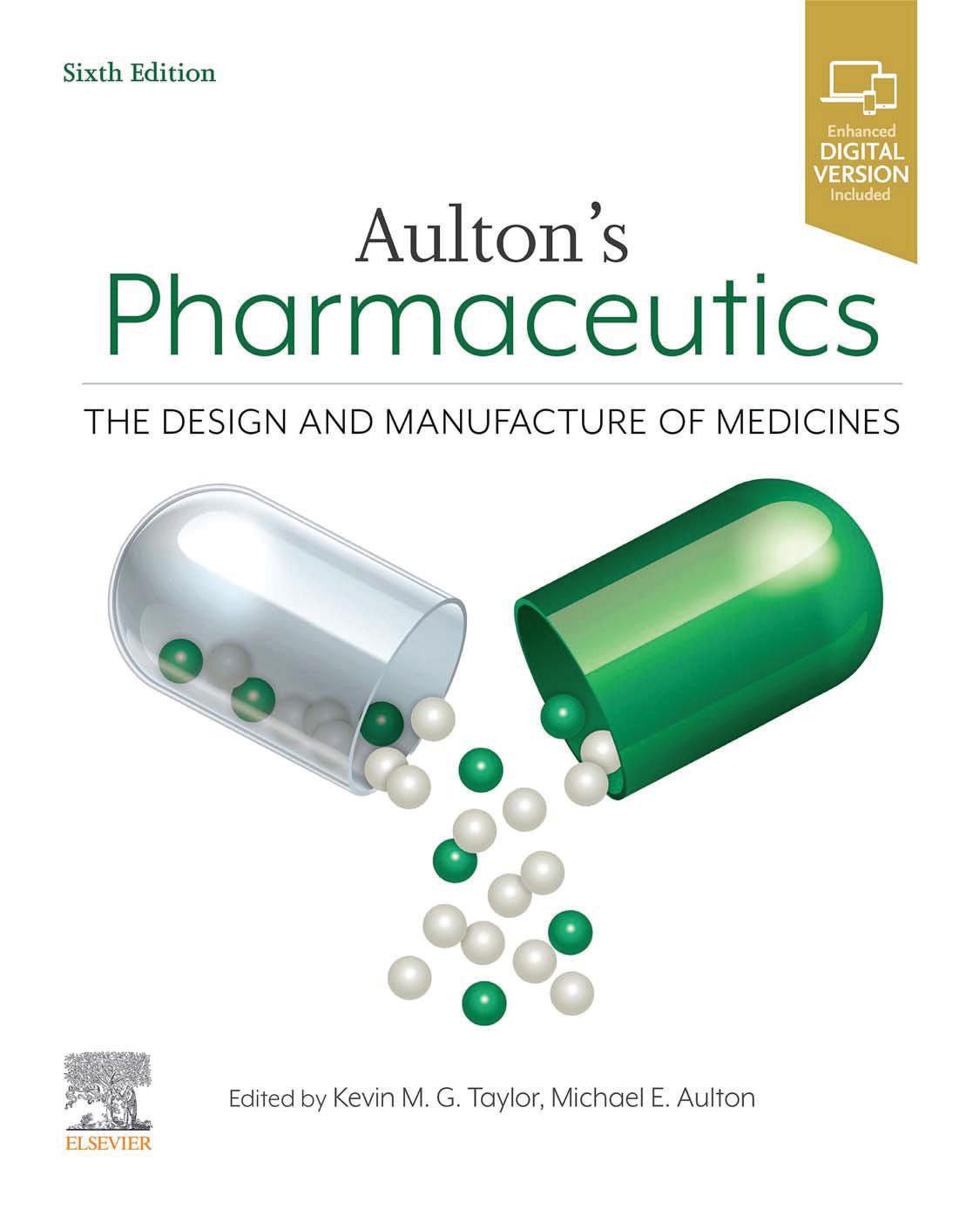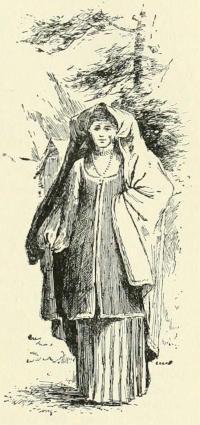Aulton’s Pharmaceutics
TheDesignandManufactureof Medicines
SixthEdition
Editedby
KevinM.G.Taylor
BPharm,PhD,FRPharmS ProfessorofClinicalPharmaceutics UCLSchoolofPharmacy London,UK
MichaelE.Aulton
BPharm,PhD,FAAPS,FSP,FRPharmS EmeritusProfessor DeMontfortUniversity Leicester,UK
Elsevier 2022,ElsevierLimited.Allrightsreserved.
Firstedition1988
Secondedition2002
Thirdedition2007
Fourthedition2013
Fifthedition2018
Sixthedition2022
Nopartofthispublicationmaybereproducedortransmittedinanyformorbyanymeans,electronicormechanical,including photocopying,recording,oranyinformationstorageandretrievalsystem,withoutpermissioninwritingfromthepublisher.Detailson howtoseekpermission,furtherinformationaboutthePublisher’spermissionspoliciesandourarrangementswithorganizationssuch astheCopyrightClearanceCenterandtheCopyrightLicensingAgency,canbefoundatourwebsite: www.elsevier.com/permissions
ThisbookandtheindividualcontributionscontainedinitareprotectedundercopyrightbythePublisher(otherthanasmaybenoted herein).
Notices
Practitionersandresearchersmustalwaysrelyontheirownexperienceandknowledgeinevaluatingandusinganyinformation, methods,compoundsorexperimentsdescribedherein.Becauseofrapidadvancesinthemedicalsciences,inparticular, independentverificationofdiagnosesanddrugdosagesshouldbemade.Tothefullestextentofthelaw,noresponsibilityis assumedbyElsevier,authors,editorsorcontributorsforanyinjuryand/ordamagetopersonsorpropertyasamatterofproducts liability,negligenceorotherwise,orfromanyuseoroperationofanymethods,products,instructions,orideascontainedinthe materialherein.
ISBN:9780702081545
9780702081552
PrintedinChina
Lastdigitistheprintnumber:987654321
ContentStrategist: AlexMortimer
ContentDevelopmentSpecialist: LouiseCook
ProjectManager: AndrewRiley
Design: MaggieReid
IllustrationManager: NarayananRamakrishnan
MarketingManager: DebWatkins
KevinM.G.TaylorandMichaelE.Aulton
1. Designofdosageforms.................................. 1 PeterYork
Part1:Scientificprinciplesof dosageformdesign
2. Dissolutionandsolubility............................. 13
MichaelE.Aulton
3. Propertiesofsolutions...................................
MichaelE.Aulton
4. Surfacesandinterfaces...................................
GrahamBuckton
5. Dispersesystems..............................................
DavidAttwood
6. Rheology...........................................................
ChristopherMarriott
7. Kinetics.............................................................
GarethR.WilliamsandJohnP.Malkinson
Part2:Particlescienceandpowder technology
8. Solid-stateproperties....................................
GrahamBuckton
9. Particlesizeanalysis.....................................
KevinM.G.Taylor
10. Particlesizereductionandsize
MichaelE.Aulton
11. Mixing.............................................................
AndrewM.Twitchell
12. Powder fl
MichaelE.Aulton
Part3:Pharmaceuticalmicrobiology andsterilization
13. Fundamentalsofmicrobiology................... 184 Lara-MarieBarnesandGeoffreyW.Hanlon
14. Pharmaceuticalapplicationsof microbiologicaltechniques.......................... 208 Lara-MarieBarnesandNormanA.Hodges
15. Actionofphysicalandchemicalagents onmicroorganisms....................................... 229 Lara-MarieBarnes,GeoffreyW.Hanlonand NormanA.Hodges
16. Principlesofsterilization............................. 247 SusannahE.Walsh,KatieLairdandJean-Yves Maillard
17. Sterilizationinpractice................................ 257 Jean-YvesMaillard,KatieLairdandSusannahE. Walsh
Part4:Biopharmaceuticalprinciples ofdrugdelivery
18. Introductiontobiopharmaceutics.............. 275 MarianneAshfordandKevinM.G.Taylor
19. Gastrointestinaltract physiologyand drugabsorption............................................. 279 MarianneAshfordandKevinM.G.Taylor
20. Bioavailability physicochemical, dosageformandformulationfactors........ 297 MarianneAshford,KevinM.G.Taylorand HalaM.Fadda
21. Assessmentofbiopharmaceutical properties....................................................... 320 MarianneAshfordandKevinM.G.Taylor
22. Dosageregimens........................................... 343 SorayaDhillonandNkirukaUmaru
Part5:Dosageformdesignand manufacture
23. Pharmaceuticalpreformulation.................. 360
SimonGaisford
24. Solutions........................................................ 386
SudaxshinaMurdan
25. Clarification................................................... 397
AndrewM.Twitchell
26. Suspensions................................................... 407
SusanA.Barker
27. Emulsionsandcreams................................. 424
GillianM.Eccleston
28. Ointments,pastes,gels,cutaneous patchesandtopicalsprays........................... 453
MajellaE.Lane
29. Powders,granulesandgranulation............ 463
MichaelE.Aulton
30. Drying............................................................. 483
MichaelE.AultonandSatyanarayanaSomavarapu
31. Tabletsandcompaction............................... 501
GöranAlderbornandGöranFrenning
32. Modified-releaseoraldrugdelivery............ 542
EmmaL.McConnell,ChristineM.Madlaand AbdulW.Basit
33. Coatingoftabletsandmultiparticulates... 558
StuartC.Porter
34. Continuousmanufacturingoftablets........ 574
AkthamAburubandHalaM.Fadda
35. Hardcapsules................................................ 586
BrianE.Jones
36. Softcapsules.................................................. 599
StephenTindal
37. Dissolutiontestingofsoliddosage forms............................................................... 612
AnaCristinaFreire,FrancescaK.H.Gavinsand AbdulW.Basit
38. Parenteraldrugdelivery............................... 626
RobertLowe
39. Pulmonarydrugdelivery............................. 641
KevinM.G.Taylor
40. Nasaldrugdelivery....................................... 658
GaryP.MartinandAlisonB.Lansley
41. Oculardrugdelivery..................................... 677
HalaFadda,AshkanKhalili,PengTeeKhawand SteveBrocchini
42. Oticdrugdelivery......................................... 701
XuLiu,HughSmythandFengZhang
43. Topicalandtransdermaldrugdelivery...... 713
AdrianC.Williams
44. Rectalandvaginaldrugdelivery................. 735
KalliopiDodou
45. Preparationanddeliveryof biopharmaceuticals....................................... 752
IjeomaF.UchegbuandAndreasG.Schätzlein
46. Pharmaceuticalnanotechnologyand nanomedicines.............................................. 768
YvonnePerrie
47. Radiopharmaceuticals................................... 789
NeilHartmanandMargaretCooper
48. Theformulationandmanufactureof plantmedicines............................................. 805
G.BrianLockwood
49. Designandadministrationofmedicines forpaediatricandgeriatricpatients............ 818
CatherineTuleu,MineOrluandDavidWright
Part6:Packaging,stabilityand pharmaceuticalregulation
50. Packaging....................................................... 833
SudaxshinaMurdan
51. Chemicalstabilityindosageforms............ 848
AndrewR.BarnesandMarkSantillo
52. Microbialcontamination,spoilageand preservationofmedicines............................ 860
NormanA.HodgesandLara-MarieBarnes
53. Productstabilityandstabilitytesting......... 871
PaulMarshall
54. Pharmaceuticalquality:theapplication ofpharmaceuticsinmedicines regulation....................................................... 894
KevinM.G.Taylor,MajellaE.Laneand KhalidA.Sheikh
Self-assessmentquestions
SudaxshinaMurdan
PleasecheckyoureBookat https://studentconsult. inkling.com/ forself-assessmentquestions.Seeinside coverforregistrationdetails
Index..........................................................................915
Preface
Thisisthesixtheditionof Aulton’sPharmaceutics:TheDesignandManufactureofMedicines.The first editionwaspublishedin1988andthe fifthin2018.Thepedigreeofthebookis,however,actually mucholder.Itwasoriginallyknownas TutorialPharmacy (whichitselfalsowenttosixeditions)andwas initiallyeditedbyJohnCooperandColinGunn,andlaterbySidneyCarter.
ProfessorMikeAultonandProfessorKevinTaylorcontinuetheireditingroleandhaveidentified newauthorsandfreshsubjectmatterforthisnewedition.Thephilosophyofthissixtheditionremains unchangedfromthatofpreviouseditions,i.e.itisintentionallydesignedandwrittenfornewcomersto thedesignofdosageforms(drugproducts).Otherexperttextscantakeyouintomuchgreaterdetailfor eachofthesubjectareasconsideredhere,onceyouhavemasteredthesebasics.
Thesubjectmattercoveredbythebookremains,inessence,thesamebutthedetailhaschanged significantly,becausepharmaceuticshaschanged.Sincethelasteditiontherehavebeenchangesinthe waythatdosageformsaredesignedandmanufacturedanddrugsaredelivered.Thesedevelopmentsare reflectedinthisnewedition.
Theinvolvementofawiderangeofauthorscontinuesinthisedition,allauthorsbeingarecognized expertinthe fieldonwhichtheyhavewritten.Justasimportantly,eachauthorhasexperienceof impartingthatinformationtoundergraduatepharmacyandpharmaceuticalsciencestudents,to practitionersinthepharmaceuticalandassociatedindustries,andtothoseworkingintechnicalservices withinhospitalpharmacywhoarenewtothesubject.Mostauthorsfromthepreviouseditionremainas theyarestillworldleadersintheir field.Otherchaptershavebeenwrittenbyanewgenerationofexperts. Thenewauthorshipreflectscontemporaryknowledgeandthinkinginpharmaceutics.
Everychapterhasreceiveddetailedattentionandhasbeenrevisedandupdatedappropriatelyto reflectmodernthinkingandcurrentuniversitycurriculaworldwide.Someofthebasicscienceremains virtuallyunchanged andwillalwaysdoso butotherareas,suchasbiopharmaceuticsandsome areasofdrugdelivery,havechangedsignificantlyinrecentyears.
Severalnewauthorsandnewsubjectareashavebeenincludedinthiseditiontoensure thecomprehensivenatureandcurrencyofthistext.Thefollowingnewchaptershavebeenaddedtothe sixthedition.
l Thedesignandpreparationofdosageformsappliedtotheskin,includingointments,pastes, gels,cutaneouspatchesandtopicalspraysarenowgatheredtogetherinasinglechapter.
l Continuousmanufacturingisarelativelynewconceptinthemanufactureofpharmaceutical products.Itisconsideredhereinanewchapterwithaparticularfocusontabletmanufacturing.
l Theformulationandplaceintherapyofdrops,semisolids,injectionandimplantsfordelivering drugstoandviatheear(oticdelivery)formthesubjectmatterofanothernewchapter.
l Thereisanewchapteronradiopharmaceuticalsusedfordiagnosticandtherapeuticpurposes coveringtheirformulation,preparation,purification,qualitycontrolanddelivery.
l Thebookendswithanewchapteronpharmaceuticalqualityandtheapplicationofpharmaceutics inmedicinesregulation.Itoutlineshowmedicinesareregulatedandhowtheirqualityisassured.It showshowtheapplicationofthetheoriesandpracticesdescribedintheprecedingchaptersofthe bookenablequalitytobebuiltintoamedicinalproduct.
Preface
Allpurchasersoftheprintversionofthisneweditionreceivetheenhancedebook,whichcanbe usedonlineordownloadedtotheirmobiledeviceforconvenient,anytimeaccess.Theebookincludes morethan400self-assessmentquestions,basedonthecontentofthisbook,tocheckunderstanding andtohelpwithanyexaminationpreparation.
Wewishyouwellinyourstudiesifyouareanundergraduatestudent,orwithyourcareerifyou areworkinginindustry,thehospitalserviceormedicinesregulation.Wesincerelyhopethatthis bookhelpswithyourunderstandingofpharmaceutics thescienceofthedesignandmanufacture ofmedicines.
K.M.G.Taylor M.E.Aulton
AkthamAburub PhD ResearchFellow PharmaceuticalProductDesign EliLillyandCompany Indianapolis,IN,USA
GöranAlderborn PhD ProfessorinPharmaceutical Technology DepartmentofPharmaceutical Biosciences UppsalaUniversity Uppsala,Sweden
MarianneAshford BSc(Hons),PhD SeniorPrincipalScientist PharmaceuticalSciences AstraZeneca Macclesfield,UK
DavidAttwood BPharm,PhD,DSc, CChemFRSC EmeritusProfessor ManchesterPharmacySchool UniversityofManchester Manchester,UK
MichaelE.Aulton BPharm,PhD, FRPharmS,FAAPS,FSP EmeritusProfessor LeicesterSchoolofPharmacy DeMontfortUniversity Leicester,UK
SusanBarker BPharm,PhD HeadofSchool MedwaySchoolofPharmacy UniversitiesofKentand Greenwich Chatham,UK
Contributors
AndrewR.Barnes BSc,PhD,FRSC QualityAssuranceSpecialist EastSuffolkandNorthEssexNHS FoundationTrust IpswichHospital Ipswich,UK
Lara-MarieBarnes BSc,PhD SeniorLecturerinPharmaceutical Microbiology SchoolofPharmacyandBiomolecular Sciences UniversityofBrighton Brighton,UK
AbdulW.Basit PhD ProfessorofPharmaceutics DepartmentofPharmaceutics UCLSchoolofPharmacy UniversityCollegeLondon London,UK
SteveBrocchini PhD ProfessorofChemicalPharmaceutics SchoolofPharmacy UniversityCollegeLondon London,UK
GrahamBuckton BPharm,PhD,DSc EmeritusProfessorofPharmaceutics UCLSchoolofPharmacy UniversityCollegeLondon London,UK
MaggieCooper BSc(Hons),MSc,PhD ResearchFellowinTranslational Radiopharmacy SchoolofBiomedicalEngineeringand ImagingSciences King’sCollegeLondon London,UK
SorayaDhillon BPharm,(Hons)PhD, FRPharmS EmeritusProfessor SchoolofLifeandMedicalSciences UniversityofHertfordshire Hatfield,UK
KalliopiDodou BSc(Hons),PhD AssociateProfessor HealthSciencesandWell-being UniversityofSunderland Sunderland,UK
GillianM.Eccleston BSc,PhD, FRPharmS,CChem,FRSC EmeritusProfessorofPharmaceutics StrathclydeInstituteofPharmacyand BiomedicalSciences UniversityofStrathclyde Glasgow,UK
HalaM.Fadda MPharm,PhD AssociateProfessorofPharmaceutics CollegeofPharmacyandHealthSciences ButlerUniversity Indianapolis,IN,USA; HonorarySeniorLecturer UniversityCollegeLondon London,UK
AnaCristinaFreire PhD DevelopmentDirector Aptuit Oxford,UK
GöranFrenning ProfessorinPharmaceuticalPhysics DepartmentofPharmaceuticalBiosciences UppsalaUniversity Uppsala,Sweden
Contributors
SimonGaisford BSc,MSc,PhD ProfessorofPharmaceutics DepartmentofPharmaceutics UCLSchoolofPharmacy UniversityCollegeLondon London,UK
FrancescaK.H.Gavins MPharm PhDResearcher DepartmentofPharmaceutics UCLSchoolofPharmacy UniversityCollegeLondon London,UK
GeoffreyHanlon BSc,PhD EmeritusProfessorofPharmaceutical Microbiology SchoolofPharmacyandBiomolecular Sciences UniversityofBrighton Brighton,UK
NeilHartman BPharm,MSc,PhD HeadofDepartmentofNuclearMedicine SingletonHospital Swansea,UK; Professor MedicalSchool SwanseaUniversity Swansea,UK
NormanA.Hodges MPharm,PhD FormerlyPrincipalLecturer SchoolofPharmacy BrightonUniversity Brighton,UK
BrianE.Jones BPharm,MPharm HonorarySeniorLecturer WelshSchoolofPharmacy CardiffUniversity Cardiff,UK
AshkanKhalili MD,PhD,FRCOphth Birmingham&MidlandEyeCentre Birmingham,UK
PengTeeKhaw PhD,FRCP,FRCS, FRCOphth,FRCPath,FCOptom, HonDScFRSB,FARVO,FMedSci ConsultantOphthalmicSurgeonandProfessorofGlaucomaandOcularhealing NationalInstituteforHealthResearch BiomedicalResearchCentreatMoorfields EyeHospitalNHSFoundationTrust
andUCLInstituteofOphthalmology MoorfieldsEyeHospitalandUCL InstituteofOphthalmology London,UK
KatieLaird BScPhD Reader/AssociateProfessorin Microbiology TheSchoolofPharmacy DeMontfortUniversity Leicester,UK
MajellaE.Lane BSc,PhD SeniorLecturer UCLSchoolofPharmacy UniversityCollegeLondon London,UK
AlisonB.Lansley BSc(Hons) Pharmacy,PhD PrincipalLecturer SchoolofPharmacyandBiomolecular Sciences UniversityofBrighton Brighton,UK
XuLiu PhD ResearchAssistant DepartmentofPharmaceutics MolecularPharmaceuticsandDrug Delivery CollegeofPharmacy TheUniversityofTexasatAustin Austin,TX,USA
G.BrianLockwood BPharm,PhD, MRPharmS Professor DivisionofPharmacyandOptometry UniversityofManchester Manchester,UK
RobertLowe BPharm(Hons) DirectorofPharmacyQualityAssurance SpecialistServices EastofEnglandand Northamptonshire NHSEngland Norwich,UK
ChristineM.Madla BSc,MSc PhDResearcher DepartmentofPharmaceutics UCLSchoolofPharmacy UniversityCollegeLondon London,UK
Jean-YvesMaillard BSc,PhD ProfessorofPharmaceutical Microbiology
SchoolofPharmacyandPharmaceutical Sciences
CardiffUniversity Cardiff,UK
JohnMalkinson BPharm,PhD, MRPharmS,FRSC,SFHEA
AssociateProfessor
UCLSchoolofPharmacy UniversityCollegeLondon London,UK
ChrisMarriott PhD,DSc EmeritusProfessorofPharmaceutics DepartmentofPharmacy King’sCollegeLondon London,UK
PaulMarshall BPharm,PhD Director RegulatoryandProduct Development SMCLtd Brackley,UK
GaryP.Martin BPharm,PhD, FRPharmS Professor(Emeritus)ofFormulation Science
SchoolofCancerandPharmaceutical Science
InstituteofPharmaceuticalScience King’sCollegeLondon London,UK
EmmaL.McConnell MPharm,PhD ScientificDirector AspireScientificLtd ClarenceMill Bollington,UK
SudaxshinaMurdan BPharm,PhD ReaderinPharmaceutics
UCLSchoolofPharmacy UniversityCollegeLondon London,UK
MineOrlu PhD,MSc AssociateProfessor
UCLSchoolofPharmacy UniversityCollegeLondon London,UK
YvonnePerrie PhD Professor StrathclydeInstituteofPharmacyand BiomedicalSciences UniversityofStrathclyde Glasgow,UK
KendalG.Pitt FRPharmS,FAPS, AFIChemE,BPharm,PhD SeniorTechnicalDirector PharmaSupplyChain GlaxoSmithKline Ware,UK
StuartPorter PhD President,PPTPharmaTechnologies Hatfield,PA,USA
MarkSantillo MRPharmS RegionalQualityAssuranceOfficer/ HonoraryFinancialOfficerJPAG Torbay&SouthDevonNHS FoundationTrust Torbay,UK
AndreasG.Schätzlein PhD Professor UCLSchoolofPharmacy UniversityCollegeLondon London,UK
KhalidA.Sheikh BPharm,MSc,PhD SeniorTeachingFellow UCLSchoolofPharmacy UniversityCollegeLondon London,UK
HughD.C.Smyth BPharm,PhD Professor MolecularPharmaceuticsandDrug Delivery CollegeofPharmacy TheUniversityofTexasatAustin Austin,TX,USA
SatyanarayanaSomavarapu PhD SeniorLecturer UCLSchoolofPharmacy UniversityCollegeLondon London,UK
KevinM.G.Taylor BPharm,PhD, FRPharmS ProfessorofClinicalPharmaceutics UCLSchoolofPharmacy UniversityCollegeLondon London,UK
StephenTindal BSc Director,Science&Technology,Europe CatalentPharmaSolutions Swindon,UK
CatherineTuleu PhDDocteuren Pharmacie Professor UCLSchoolofPharmacy UniversityCollegeLondon London,UK
AndrewTwitchell BScPharmacy, PhD FormerlySeniorPharmaceuticalAssessor Licensing MHRA London,UK
IjeomaF.Uchegbu PhD Professor UCLSchoolofPharmacy UniversityCollegeLondon London,UK
NkirukaUmaru MPharm,PhD,MA PrincipalLecturer SchoolofLifeandMedicalSciences ClinicalandPharmaceuticalSciences UniversityofHertfordshire Hatfield,UK
Contributors
SusannahE.Walsh BSc,PhD,MBA ProfessorofPharmaceuticalMicrobiology SchoolofPharmacy DeMontfortUniversity Leicester,UK
AdrianC.Williams BSc,PhD ProfessorofPharmaceutics SchoolofPharmacy UniversityofReading Reading,UK
GarethWilliams MChem,DPhil, FRSC,FAPS,SFHEA ProfessorofPharmaceuticalMaterials Science
UCLSchoolofPharmacy UniversityCollegeLondon London,UK
DavidJ.Wright BPharm(Hons), PhD,PGCHE ProfessorofPharmacyPractice SchoolofPharmacy UniversityofEastAnglia Norwich,UK
PeterYork DSc,PhD,BSc EmeritusProfessor SchoolofPharmacy UniversityofBradford Bradford,UK
FengZhang PhD AssociateProfessor MolecularPharmaceuticsandDrug Delivery CollegeofPharmacy TheUniversityofTexasatAustin Austin,TX,USA
Thispageintentionallyleft blank
Acknowledgements
Theeditorswishtotakethisopportunitytothankthosewhohaveassistedwiththepreparationof thistext.Weareextremelyindebtedtothefollowing:
Theauthors forthetimeandqualityofeffortthattheyhaveputintotheirtexts;alwaysunder pressurefromnumerousothercommitments,andalsofromus.Modernlifehasfewsparemoments andsothetimethattheyhavespentincontributingsoknowledgeablyandprofessionallytothistext iswarmlyappreciated.
Themanyacademicandindustrialpharmaceuticalscientists whohelpedduringthedesignof thecontentsofthiseditiontoensurethatitcorrespondsascloselyaspossiblewithmodernpractice andwiththecurriculaofcurrentpharmacyandpharmaceuticalsciencecoursesinternationally.
Thepublishingcompanies whohavegiventheirpermissiontoreproducematerialinthis edition.
Themanysecretariesandartists whohaveassistedtheauthors,editorsandpublishersinthe preparationoftheirwork.
ChristineAulton fortypingandothersecretarialassistance,andforhelpincountlessother waysthathasenabledtimetobespentonthiseditionofthebook.Editingabooklikethisisa time-consumingprocessthattakesusoutofcirculationforlongdaysatatime,soherforbearanceis particularlyappreciated.
PaulineTaylor forhersupportandforbearanceduringtheevenings,weekendsandholidays spentinthepreparationofthisbook.
CatherineBaumber (PharmaceuticsDepartment,UCLSchoolofPharmacy)forhersecretarial andadministrativesupportthroughoutthisbook’spreparation.
SusanStuart (ourDevelopmentEditoronbehalfofElsevier)forhelpingtheeditorsandauthors duringthechapter-creationandchapter-submissionphases.Shewasagreatpleasuretoworkwith, andtheeditorshaveappreciatedherefficiency,understandingandattentiontodetail.
Anumberofpeoplehaveassistedtheeditorsandauthorsinvariousways:contributingtouseful discussions,providinghelpfulcommentsandsuggestionsregardingthetext,providingupdatesfrom practice,andforallowingtheuseoftheirmaterialfrompreviouseditions.Theeditorswouldliketo acknowledgeandoffergratefulthanksfortheinputofallpreviouseditions ’ contributors,without whomthisneweditionwouldnothavebeenpossible.Theeditorsandauthorsparticularlywishto thank:
JohnCollett(Chapter22)
JoFerdinandoandKeithHutchison(Chapter36)
KendallPitt(Chapters10and29)
JoaoInacioSilva(Chapter13)
K.M.G.Taylor M.E.Aulton
Another random document with no related content on Scribd:
he ordered to be carried away in chains to various towns and kept in strict imprisonment.e
The princes of Suzdal, Boris’ nephews, were banished, and Vasili also acquired Suzdal. Later on the princes of Suzdal made peace with the grand prince and received back from him their patrimonial estates, but from generation to generation they remained dependants of Moscow and not independent rulers. In 1395 took place an event which raised the moral importance of Moscow: on account of an expected invasion of Timur (Tamerlane), which, however, never took place, Vasili Dmitrievitch ordered to be transported from Vladimir to Moscow that famous ikon which Andrew had formerly taken from Kiev to his beloved town of Vladimir; this ikon now served to consecrate the pre-eminence of Moscow over all other Russian towns.
[1395-1412 A.D.]
Following in the steps of his predecessors, Vasili Dmitrievitch oppressed Novgorod, but did not however entirely attain to the goal of his designs. Twice he endeavoured to wrest her Dvinsk colonies from her, taking advantage of the fact that in the Dvinsk territories a party had been formed which preferred the rule of the Moscow grand prince to that of Grand Novgorod. The people of Novgorod were fortunate in defending their colonies, but they paid dearly for it: the grand prince laid waste the territory of Novgorod, and ordered some of the inhabitants who had killed a partisan of his at Torzhok to be strangled; but worse than all, Novgorod itself could not get on without the grand prince and was obliged to turn to him for help when another grand prince, namely the Lithuanian, attempted its conquest.
At that period the horde was so torn up with inward dissensions that Vasili had not for some years paid tribute to the khan and regarded himself as independent; but in 1408 an unexpected attack was made on Moscow by the Tatar prince Edigei, who like Mamai, without being khan himself, made those who bore the name of khan obey him. Vasili Dmitrievitch being off his guard and thinking that
the horde had become weakened, did not take early measures against his wily adversary, who deceived him by his hypocrisy and pretended good-will. Like his father he escaped to Kostroma, but provided better than his father for the defence of Moscow by confiding it to his brave uncle, Prince Vladimir Andreevitch. The inhabitants themselves burned their faubourg, and Edigei could not take the Kremlin, but the horde laid waste many Russian towns and villages. Moscow now learned that although the horde had no longer the power to hold Russia in servitude, yet it might still make itself terrible by its sudden incursions, devastations, and capture of the inhabitants. Shortly thereafter, in 1412, Vasili went to the horde to do homage to the new khan Djelalledin, brought him tribute, and made presents to the Tatar grandees, so that the khan confirmed the grand principality to the prince of Moscow, although he had previously intended to bestow it upon the exiled prince of NijniNovgorod. The power of the khans over Russia was now only held by a thread; but for some time yet the Moscow princes could take advantage of it in order to strengthen their own authority over Russia and to shelter their inclinations under the shadow of its ancient might. Meanwhile they took measures of defence against the Tatar invasions, which might be all the more annoying because they were directed from various sides and from various fragments of the crumbling horde. In the west the Lithuanian power, which had sprung up under Gedimin, and grown great under Olgerd, had attained to its utmost limits under Vitovt.
Strictly speaking, the supreme authority over Lithuania and the part of Russia in subjection to it belonged to Iagello, king of Poland; but Lithuania was governed independently in the quality of viceroy by his cousin Vitovt, the son of that Keistut who had been strangled by Iagello. Vitovt, following the example of his predecessors, aimed at extending the frontiers of Lithuania at the expense of the Russian territories, and gradually subjugated one after another of them. Vasili Dmitrievitch was married to the daughter of Vitovt, Sophia; throughout his reign, he had to keep up friendly relations with his kinsman, and yet be on his guard against the ambitious designs of
his father-in-law. The Muscovite prince acted with great caution and prudence, giving way to his father-in-law as far as possible, but safeguarded himself and Russia from him. He did not hinder Vitovt from taking Smolensk, chiefly because the last prince of Smolensk, Iuri, was a villain in the full sense of the word, and the inhabitants themselves preferred to submit to Vitovt, rather than to their own prince. When however Vitovt showed too plainly his intentions of capturing Pskov and Novgorod, the grand prince of Moscow openly took up arms against his father-in-law and a war seemed imminent; but in 1407 the matter was settled between them, and a peace was concluded by which the river Ougra was made a boundary between the Muscovite and the Lithuanian possessions.
VASILI VASILIEVITCH (AFTERWARDS CALLED “THE BLIND” OR “THE DARK”)
Vasili Dmitrievitch died in 1425. His successor, Vasili Vasilievitch, was a man of limited gifts and of weak mind and will, but capable of every villainy and treachery. The members of the princely house had been held in utter subjection under Vasili Dmitrievitch, but at his death they raised their heads, and Iuri, the uncle of Vasili Vasilievitch, endeavoured to obtain the grand principality from the horde. But the artful and wily boyar, Ivan Dmitrievitch Vsevolozhsky, succeeded in 1432 in setting aside Iuri and assuring the grand principality to Vasili Vasilievitch. When Iuri pleaded his right of seniority as uncle, and in support of his claim cited precedents by which uncles had been preferred, as seniors in years and birth, to their nephews, Vsevolozhsky represented to the khan that Vasili had already received the principality by will of the khan and that this will should be held above all laws and customs. This appeal to the absolute will of the khan pleased the latter and Vasili Vasilievitch remained grand prince. Some years later this same boyar, angered at Vasili because the latter had first promised to marry his daughter and then married Marie Iaroslavna, the granddaughter of Vladimir Andreevitch
[1425-1435 A.D.]
Serpukhovski, himself incited Iuri to wrest the principality from his nephew. Thus Russia again became the prey of civil wars, which were signalised by hideous crimes. Iuri, who had taken possession of Moscow, was again expelled and soon after died. The son of Iuri, Vasili Kossoi (the Squinting) concluded peace with Vasili, and then, having treacherously violated the treaty, attacked Vasili, but he was vanquished, captured, and blinded (1435). After a few years the following events took place at the Golden Horde: the khan Ulu Makhmet was deprived of his throne and sought the aid of the grand prince of Moscow. The grand prince not only refused him his aid, but also drove him out of the boundaries of the territory of Moscow. Ulu Makhmet and his partisans then established themselves on the banks of the Volga at Kazan, and there laid the foundations of a Tatar empire that during a whole century brought desolation on Russia. Ulu Makhmet, as ruler of Kazan, avenged himself on the Muscovite prince for the past, was victorious over him in battle, and took him prisoner. Vasili Vasilievitch only recovered his liberty by paying an enormous ransom. When he returned to his native land, he was against his will obliged to lay upon the people heavy taxes and to receive Tatars into his principality and give them estates. All this awakened dissatisfaction against him, of which the Galician prince Dmitri Shemiaka, the brother of Kossoi, hastened to take advantage, and joining himself to the princes of Tver and Mozhaisk, in 1446 he ordered Vasili to be treacherously seized at the monastery of Troitsa and blinded. Shemiaka took possession of the grand principality and kept the blind Vasili in confinement, but observing an agitation among the people, he yielded to the request of Jonas, bishop of Riazan, and gave Vasili his liberty, at the same time making him swear that he would not seek to regain the grand principality. Vasili did not keep his oath, and in 1447 the partisans of the blind prince again raised him to the throne.
It is remarkable that from this period the reign of Vasili Vasilievitch entirely changed in character. While he had his eyesight, Vasili was a most insignificant sovereign, but from the time that he lost his
[1447-1448 A.D.]
eyes, his reign becomes distinguished for its firmness, intelligence, and decision. It is evident that clever and active men must have ruled in the name of the blind prince. Such were the boyars: the princes Patrikeev, Riapolovski, Koshkin, Plesktcheev, Morozov, and the famous voyevods, Striga-Obolenski and Theodore Bassenok, but above all the metropolitan Jonas.
Jonas Becomes Metropolitan
RUSSIAN WOMAN
Jonas was a native of Kostroma. When he was made bishop of Riazan he did not in any wise become a partisan of the local views, his sympathies inclined to Moscow because, in conformity with the conditions of that epoch, Jonas saw in Moscow alone the centre of Russian unification. In 1431, at the death of the metropolitan Photius, Jonas was elected metropolitan, but the patriarch of Constantinople had already named the Greek Isidore to that office. This Isidore had participated in the capacity of Russian metropolitan, in the Florentine council which had proclaimed the union of the Greek church with the Roman, the pope of Rome to be the head of the Universal church. Isidore, together with the patriarch of Constantinople and the Byzantine emperor had submitted to the pope; for Isidore was at heart a Greek: all his aims were directed to the salvation of his perishing country, and like many other Greeks he hoped through the pope to arouse Europe against the Turks. It was these hopes that had caused the Greeks of that time to sacrifice the independence of their church. In the eyes of Isidore Russia too was to serve as an instrument for Greek patriotic designs;
but the union was rejected at Moscow, Isidore was driven out, and for some years the office of metropolitan of Moscow remained unoccupied. Kiev had its own metropolitans since the days of Vitovt, but Moscow did not wish to have anything to do with them. The bishop of Riazan, Jonas, having been already named metropolitan by the Russian clergy, enjoyed at Moscow a pre-eminent importance and influence, and finally, in 1448, this archbishop was raised to the rank of metropolitan by an assembly of the Russian bishops, without regard to the patriarch. This event was a decisive breach with the past, and from that time the eastern-Russian church ceased to depend upon the patriarch of Constantinople and acquired full independence. The centre of her supreme power was Moscow, and this circumstance definitively established that moral importance of Moscow, which had been aimed for by the metropolitan Peter, which had been held up by Alexis, and which had received greater brilliancy from the transfer of the ikon of the Blessed Virgin from Vladimir. From that time the Russian territories not yet subject to Moscow and aiming to preserve their independence from her Tver, Riazan, Novgorod—were bound to her more closely by spiritual bonds.
When he had for the third time ascended the throne of Moscow, the grand prince designated as co-regent with himself his eldest son Ivan, who was thenceforth called grand prince like his father, as is shown by the treaties of that period. It was from that time that the political activity of Ivan commenced and gradually widened; and there is no doubt that when he attained his majority it was he, and not his blind father that directed the accomplishment of the events which led to the strengthening of Moscow. Prince Dmitri Shemiaka, who had been obliged to promise on his oath to desist from any further attempts upon the grand principality, did not cease to show his enmity against Vasili the Dark. The clergy wrote to Shemiaka a letter of admonishment, but he would not listen to their remonstrances, and the armies of Moscow marched with the blessing of Jonas and accompanied by the young prince, against Shemiaka in Galicia. Shemiaka was defeated and fled to Novgorod,
where the inhabitants gave him a refuge, and Galicia with its dependencies was again joined to Moscow. Shemiaka continued to plot against Vasili, took Ustiug, and established himself there; but the young prince Ivan Vasilievitch drove him out, and Shemiaka again fled to Novgorod. The metropolitan Jonas issued an edict declaring Shemiaka excommunicated from the church, forbidding orthodox persons to eat and drink with him, and reproaching the people of Novgorod for having received him. It was then decided at Moscow to put an end to Shemiaka by secretly murdering him; the secretary Borodati, through Shemiaka’s boyar Ivan Kotov, induced Shemiaka’s cook to prepare and serve to him a poisoned fowl (1453).
Vasili the Dark died on the 5th of March, 1462, from an unsuccessful treatment of burns. He outlived his chief counsellor, the metropolitan Jonas, by a year, the latter having died on the 31st of March, 1461.h
[1462 A.D.]
A REVIEW OF THE INTERNAL DEVELOPMENT DURING THE TATAR PERIOD
The beginning of the fourteenth century was the commencement of a new epoch in the life of Russia; in its two halves two empires began to crystallize: that of Moscow in the east and that of Lithuania in the west, and the scattered elements began to gather around the new centres. Such a centre for eastern Russia was Moscow, until then an insignificant town, rarely mentioned in the chronicles, being the share of the younger and therefore less powerful princes. Under Daniel Aleksandrovitch[22] the town of Moscow constituted the whole principality. With the acquisition of Pereiaslavl (1302), Mozhaisk (1303), and Kolomna (1308) this region became somewhat more extended, but when it fell to the share of Ivan Danilovitch after the death of his brother Iuri, it was still very insignificant; and yet through its resources the princes of Moscow managed to become
the first in eastern Russia and little by little to gather round them the whole of eastern Russia. The rise of the principality of Moscow is one of the most remarkable phenomena in the history of Russia. It is therefore not surprising that particular attention should have been directed towards it by historians, and by the light of their united investigations the phenomenon becomes sufficiently clear.
In the thirteenth century, under the domination of the Tatars in eastern Russia, there was a continual struggle amongst the princes for the title of grand prince, to which they also strove to unite the possession of Vladimir. We also observe another distinctive feature of the time, which was that the princes did not remain to live in Vladimir, but only strove to unite it to their own possessions, and thus augment them, and, if possible, secure them for their families. The struggle was for the preponderance of one family over another through the extension of its territorial possessions. In the Kievan period, whoever became prince of Kiev, removed to Kiev, and named someone of his own family as ruler in his own principality, so that if Kiev were lost and it should pass into another family, he would not lose his own patrimony.
During the Tatar period we note a new phenomenon: the princes did not merely separate themselves from their patrimonial lands, but even from their capitals; for instance: Iaroslav lived in Tver, Basil in Kostroma, Andrew in Gorodeza, Dmitri in Pereiaslavl, and so on. The power of a grand prince at that time was only a hegemony, a preponderance over other princes; as a testimony of their independence the other princes, the elders of their families (such as Riazan, Tver, etc.) began also to call themselves grand princes, and the preponderance of the grand prince of Vladimir little by little lost its significance. To all this there must yet be added another special circumstance, that in order for anyone to unite Vladimir and its territory to his possessions and thus obtain the predominance, a iarlik or letter of the khan was required; no rights were necessary and a wide field was open for every guest. Thus there appeared a new basis for the right of succession: the favour of the khan. To obtain this favour was the aim of all the princes, to keep it—a
peculiar art. Whoever possessed this art would be the head over all eastern Russia, and whoever could maintain this position was bound to subordinate all the rest to himself. In consequence of this, the first condition for success at that time was a dexterous tactfulness, and whoever possessed this quality must come out victor. This dexterousness was a peculiar distinction of the Muscovite princes, and in it lay the chief cause of their success. They had neither power nor higher rights, and all their hopes were founded on their own skill and the favour of the khan. They had no riches, and their patrimonial lands, poor and secluded, away from the great rivers which were then the chief means of communication, did not yield them large means.
But to ensure success with the khan, his wife, and the princes of the horde, money was necessary; so they became saving and scraping, and all their capacities were directed to the acquisition of gain. Their qualities were neither brilliant nor attractive, but in their position it was only by these sober qualities that anything could be obtained. Alexander Iaroslavitch (Nevski) pointed out to his successors that their policy should be to give way when necessary and to wait when uncertain. He who followed this counsel was successful; whosoever hurried, like Alexander Mikhailovitch (of Tver), was a loser in the game.
But while taking advantage of every means of influence at the horde, the Muscovite princes did not lose sight of those means by which they could also act within Russia itself. Ivan Danilovitch managed to induce the metropolitan St. Peter to come to Moscow, and his successors continued to reside in that town. The alliance with the spiritual power, the only power that embraced the whole of Russia, was of extraordinary advantage to the Muscovite princes.
The metropolitan could exert his influence everywhere. Thus Theognost closed the churches at Pskov when that city offered an asylum to Alexander Mikhailovitch, and St. Sergius did likewise at Nijni-Novgorod when it accepted a prince to whom Moscow was opposed. This alliance was a most natural one: if the princes needed
the authority of the church, the clergy—at that time the representatives of the most advanced ideas concerning the civil order—sought to realise that order of which it stood in need even for its purely economic interests. There is not the slightest doubt that one of the chief causes of the devotion of the clergy to the views and policies of the Muscovite princes, lay in its conviction that it was bound to derive material advantages from the concentration of all power in the hands of one prince. In fact, while the system of appanages prevailed, it was, on the one hand, extremely difficult for the clergy to enjoy its possessions and privileges in security, because the maintenance of this security depended not on one, but on many; while on the other hand, the princes of appanages infringed on clerical privileges more frequently than the grand prince. The dispersion of the monastic estates over several principalities still further contributed to the desire of the clergy for the abolition of the appanage system, which increased the difficulties of managing those estates. Especially in the case of war among the princes of appanages, the clergy of one appanage might easily be deprived of its possessions in another appanage, because at such a time all means of injuring the enemy were considered permissible.
In the increase of power of the Muscovite princes a leading part also belongs to the Moscow boyars, whose activity was principally displayed during the youth or minority of the grand princes.[23]
Such were the principal causes of the strength of the Moscow princes; to them should be added (according to the historians N. V. Stankevitch and S. M. Soloviov) the central position of the principality of Moscow, both in the sense that Moscow is near the sources of the chief rivers, and that an attack from without must first fall on the surrounding principalities. But these causes are evidently secondary and would have no significance without the others: Moscow is not so far from the other principalities that these advantages would belong to her alone. It was much more important that a wise policy, by preserving Moscow from the attacks of the Tatars, attracted thither an increased population and thus enriched
the principality. A final important cause was the weakening of the Tatar horde and its dismemberment at the end of this period, of which the princes of Moscow did not fail to take advantage for their own ends.b
THE INFLUENCE OF TATAR DOMINATION
Karamsin, in relating the history of the invasion of Russia by the Mongols, makes some reflections on the consequences of the domination of these barbarians for the Russian people. In spite of his devotion to autocratic power, he cannot prevent himself from keenly regretting the liberty which this power had superseded.
“There was a time,” he says, “when Russia, shaped and elevated by the unity of the sovereign power, yielded neither in force nor civilisation to the foremost of the European powers founded by the peoples of Germany on the ruins of the Western Empire. Having the same character, the same laws, the same usages, the same political institutions, which were communicated to Russia by the Varangian or Norman princes, she took her place in the new political system of Europe with some real claims to a great importance, and with the remarkable advantage of being under the influence of Greece, the only one of all the powers which had not been overthrown by the barbarians. This happy time for Russia, is that of Iaroslav the Great. Strengthened by both Christianity and public order, she possessed a religious teaching, schools, laws, an important trade, a numerous army, a fleet, unity of power, and civil liberty. What was Europe at the beginning of the eleventh century? The theatre of feudal tyranny, of the weakness of sovereigns, of audacity amongst the barons, of slavery in the peoples, of superstition and of ignorance. The genius of Alfred and Charlemagne shone through the darkness, but soon faded away; their memory only has survived, their beneficent institutions, their generous intentions, disappeared with them.
“The shadow of barbarism, by veiling the horizon of Russia, hid Europe from its sight at the very time at which enlightenment was beginning to spread there; when the people began to shake off slavery, and the towns to contract alliances for their mutual guarantee against oppression; when the invention of the compass extended navigation and commerce; the time which saw the foundation of universities, in which fine manners began to soften, etc. During this period Russia, oppressed and torn asunder by the Mongols, was collecting all her forces merely that she might not perish. There was then no question of civilisation for the Russians. The rigours of the climate did not permit the Mongols to establish themselves in Russia as they had done in China and India. The khans wished to reign over Russia only from afar. But the envoys of the horde, representing the person of the khan, did what they chose in Russia; the traders, even the Mongol vagabonds, treated Russians as vile slaves. What was the natural consequence? Moral degradation. Forgetting national pride Russians learnt base cunning —the ruses and bravado of the weak. They deceived the Tatars, and one another they deceived still more. While ransoming themselves at the price of gold from the oppressions of the barbarians, they became more greedy, and less sensitive to insults and to shame, exposed as they were to the violence of foreign tyrants. From the time of Vasili Iaroslavitch down to that of Ivan Kalita (that most unhappy period!) Russia resembled a black forest rather than a state; might appeared to be right; he who could pillage, pillaged, foreigners and natives alike; there was no safety, either on the roads or at home; robbery destroyed property everywhere. And when this terrible anarchy began to disappear, when the stupor and the terror had ceased, and law, which is the soul of society, could at least be re-established, it was then necessary to have recourse to a severity unknown to the ancient Russians. Light pecuniary fines had formerly sufficed for the repression of theft, but already in the fourteenth century, thieves were hanged. The Russian of Iaroslav’s day knew no other blows than those he might receive in a private quarrel; under the yoke of the Mongols corporal punishment was introduced. It may be that the present character of the nation still offers traces which
were impressed upon it by the barbarity of the conqueror. It must be remarked also that, together with other noble qualities, valour and military courage grew visibly weaker. Formerly the princes had struck with the sword; during this period they redressed their grievances by means only of baseness and complaints brought before the khans. If, after two centuries of such slavery, Russians have not lost all moral sense, all love for virtue, and all patriotism, let us thank the influence of religion; it is religion which has maintained them in the position of men and citizens, which has not allowed hearts to grow hard, and conscience to be silenced. Humiliated as Russians they again raised themselves under the name of Christians, and they loved their country as being a country of true believers.
“The internal constitution of the state was changed; everything which was free, everything which was founded on ancient rights, civil or political, became extinct. After having humbly cringed to the horde, the princes returned to their homes as terrible masters, for they were commanding in the name of a supreme suzerain. That which could not be done either in the days of Iaroslav the Great or in those of Andrew and of Vsevolod III, was accomplished noiselessly and without difficulty in the time of the Mongols. At Vladimir and everywhere else, except Novgorod and Pskov, there was no longer heard the sound of the vetché bell, that manifestation of popular sovereignty; a manifestation which was often tumultuous, but dear to the descendants of Slavo-Russians. This right of the ancient towns was no longer known to the new towns, like Moscow and Tver, which became important during the Mongol dominion. Once only do the chronicles make mention of the vetché of Moscow and they speak of it as an extraordinary event when the capital, threatened by the enemy, and abandoned by the sovereign, found itself thrown on its own resources. The towns had lost the right of electing their chiefs, who, by their importance and the splendour of their elective dignity, had given umbrage not only to the princely dignitaries but to the princes themselves.”f
Wallace’s View
The Tatar domination did not by any means Tatarise the country. The Tatars never settled in Russia proper, and never amalgamated with the people. So long as they retained their semi-pagan, semiBuddhistic religion, a certain number of their notables became Christians and were absorbed by the Russian noblesse; but as soon as the horde adopted Islam, this movement was arrested. There was no blending of the two races such as has taken place—and is still taking place—between the Russian peasantry and the Finnish tribes of the north. The Russians remained Christians, and the Tatars remained Mahommedans; and this difference of religion raised an impassable barrier between the two nationalities.
It must, however, be admitted that the Tatar domination, though it had little influence on the life and habits of the people, had a very deep and lasting influence on the political development of the nation. At the time of the conquest Russia was composed of a large number of independent principalities, all governed by the descendants of Rurik. As these principalities were not geographical or ethnographical units, but mere artificial, arbitrarily defined districts, which were regularly subdivided or combined according to the hereditary rights of the princes, it is highly probable that they would in any case have been sooner or later united under one sceptre; but it is quite certain that the policy of the khans helped to accelerate this unification and to create the autocratic power which has since been wielded by the czars.c
FOOTNOTES
[10] [This is, of course, meant only in a limited sense. The migration of peoples still continues with unabated force, but its centre has moved from Asia to Europe. Thence it moves in a twofold direction: on the one hand, from western Europe to America and Australia; and on the other hand, from eastern Europe to the remotest confines of Asia.]
[11] [A modern army inevitably loses in numbers and its difficulties increase as it advances from its base of operations into the enemy’s country. The very reverse was the situation of the
Tatars. They needed no base of operations, for they took along with them their flocks, their tents, and all their belongings, and while their flocks fed upon the grassy steppes, they in turn fed upon their flocks. And the nomadic and predatory tribes whom they encountered on their march led the same kind of life as themselves, and were easily induced to join in the certain expectation of plunder. Thus the tide kept on ever increasing and gaining in force. In fact, the Tatars can hardly be styled an army, but a people in motion.ka]
[12] [At first the Russians had only very vague notions as to who this terrible enemy was. The old chronicler remarks briefly: “For our sins unknown people have appeared. No one knows who they are or whence they have come, or to what race and faith they belong. They are commonly called Tatars, but some call them Tauermen, and others Petchenegs. Who they really are is known only to God, and perhaps to wise men deeply read in books.” Some of these “wise men deeply read in books” supposed them to be the idolatrous Moabites who had in Old Testament times harassed God’s chosen people; whilst others thought that they must be the descendants of the men whom Gideon had driven out, of whom a reverent saint had prophesied that they would come in the latter days and conquer the whole earth, from the East even unto the Euphrates, and from the Tigris even unto the Black Sea.c]
[13] Or the Purse.
[14] In the governments of Novgorod, Vladimir, Kostroma, and Rostov, and the cities of Duglitch, Bielozersk, and Galitch.—[See Karamsin, and an act of Dmitri Donskoi.]
[15] From 1333 to 1339 the princes who held appanages espoused the cause of the prince of Tver against the grand prince of Moscow, whom they called a tyrant. In 1339 the grand prince of Moscow returned to the horde, and so terrified Usbek Khan by his denunciations against the prince of Tver and other princes, that the khan immediately summoned them to the horde, in order to restrain, or get rid of them. [See Karamsin.]
[16] See Kamenevitch (translated by Karamsin), describing the great mart of Mologa, where the commerce of Asia and of Europe met in the seventy inns of its Slavonian suburb; and where seven thousand two hundred pounds’ weight of silver were collected for the treasury of the prince.
[17] See the treaty of Dmitri Donskoi with Vladimir his uncle, who promised to pay to him the tribute of his appanage, which bore the name of the khan’s tribute; and the second treaty with the same Vladimir, by which the latter prince engaged that his boyars should pay to Dmitri the same tax which the grand prince might think proper to impose on his own boyars.
[18] It was thus that, in France, in 1445, Charles VII took advantage of the exactions of the English, and of the terror which they inspired, to render perpetual the temporary taxes, and to keep up a permanent corps of twenty-five thousand men.
[19] Usbek, it is true, with macchiavellian policy, designated all the children of Ivan I as his successors; but, in 1340, he allowed Simeon, the oldest and ablest of them, to make himself sole master of the throne. Ianisbek Khan nominated Ivan II, the brother of Simeon, after his death and that of his children, to the exclusion of a prince of the branch of Tver or Nevski. A prince Dmitri, of the Nevski branch, who had been made grand prince by a whim of Naurus Khan, was deposed in 1362 by Murat Khan, who chose Dmitri Donskoi, grandson of Ivan I, and son of Ivan II. Taktamuisch also gave the throne to Vasili II, the eldest son of Donskoi (1389). Lastly, Ulu-Mahomet nominated Vasili III, son of Vasili II, and father of the great Ivan III, whom this long succession rendered so powerful that he completely crushed the horde.
[20] From 1362 to 1380.
[21] [150,000 in Soloviov and Rambaud.]
[22] A son of Alexander Nevski.
[23] “The origin of the Russian aristocracy,” says Turgenievf , quoting from Karamzin, “is lost in the most remote antiquity. The dignity of boyar is perhaps even more ancient than that of prince; it distinguished the knights and the most notable citizens, who, in the Slav republics, commanded the armies and administrated the country. This dignity appears never to have been hereditary, but only personal. Although in the course of time it was sometimes conferred by the princes, each of the ancient towns had nevertheless its own boyars, who filled the principal elective offices; even the boyars created by the princes enjoyed a certain independence. Thus, in the treaties of the fourteenth and fifteenth centuries, we often see the contracting parties confirming to the boyars the right of quitting the service of one
prince to enter the service of another. Dissatisfied at Tchernigov, the boyar went with his numerous following to Kiev, Galitch, or Vladimir, where he found new fiefs and tokens of general respect. But when southern Russia had become transformed into Lithuania, when Moscow began to grow larger at the expense of the neighbouring principalities, when the number of princes possessing appanages began to diminish, at the same time that the sovereign’s power over the people was becoming more unlimited, then the dignity of boyar also lost its ancient importance. Popular power was favourable to that of the boyars, which acting through the prince on the people, could also act through these latter on the prince. This support at last failed them. Nothing remained to the boyars but to obey their prince, or to become traitors or rebels; there was no golden mean to take, and in the face of the sovereign, no legal means of opposition existed. In a word absolute power was developing itself.”

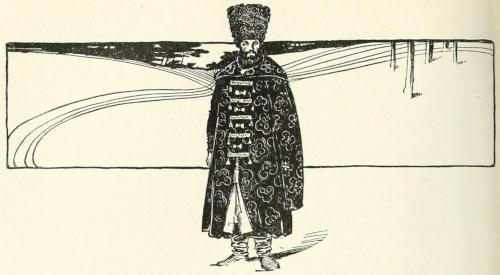
CHAPTER IV. FROM IVAN THE GREAT TO IVAN THE TERRIBLE
The great ruler who occupied the throne of Moscow at the end of the fifteenth century, was richly endowed with understanding; to his contemporaries he appeared more lucky than active, but meanwhile it was his active mind that directed all the complicated and tangled threads of the foreign and domestic relations. If his contemporaries did not always do justice to the great unificator of the land of Russia, neither is posterity always just to him. We must allow that much had been prepared by his predecessors, and this was also recognised by contemporaries; but it is nevertheless impossible not to acknowledge that Ivan towers far above his predecessors, both by his solution of ancient problems—the unification of Russia (which he had almost completed) and the throwing off of the Tatar yoke—and the raising of new ones. The ability to take advantage of circumstances places Ivan in the rank of great men. If we do not recognise his greatness, then we must apply the same judgment in part to Peter, who was largely only the more determined successor of his brother, father, and grandfather.
BESTUZHEV RIUMIN. b
ACCESSION OF IVAN (III) VASILIEVITCH
The dynasty of the Muscovite princes, which commenced in the person of Ivan Kalita, and was preserved unbroken in the lineal descent, was fortunately strengthened by the accident of the longevity of his
[1462-1584 A.D.]
successors. The reigns of Ivan, of Simeon the Proud, of Dmitri Donskoi, of Vasili, and of Vasili the Blind, embraced a period of 130 years. During that time the people had become habituated to a right which saved them from the contests of rival competitors. So many protracted reigns had stamped the legitimate authority with an unquestioned ascendency, and with this growth of time its powers inevitably increased. The manners of the Russians were now formed under a rule in which the succession was fixed and immutable, and under which a progressive system of legislation was gradually assuming a compact and tangible form. The chaos of antagonistic principles—of that misrule which is born of short-lived theories, of constant interruption, and unsettled governments—was rapidly dissolving; the light of defined administration and regulated power was rising upon the empire; and the people, who were now beginning to understand the benefits of constituted rights, were ready to support their maintenance.
Under these auspicious circumstances, Ivan III, or, as he is called by some historians, Ivan the Great, ascended the throne.
It was not to be expected that a liberal and enlightened government could at once spring from the materials which were accumulated in seasons of anarchy, relieved only by interstitial gleams of peace. The natural issue of a power purchased by enormous sacrifices, and reared up amidst difficulties, was unmitigated despotism. The grand princedom was erected in storms. Its power was built up by constant accessions won at the point of the sword, or procured by profligate bribery. It was not the growth of steady improvement, of public opinion, of the voluntary acquiescence of the people. It began by direct oppression, absolute tyranny, and open injustice. The acts of outrage which the grand princes committed in their efforts to sustain their authority were acts of necessity. They were placed in a situation of peril that exposed them equally to barbarian spoilers without, and insidious enemies within; and they were compelled to vindicate their authority by the force of arms and the arts of perfidy. Their whole career was a fluctuating war against a series of resistances. They conciliated less
than they subdued, and the unity which was at last gained by perseverance in a mixed policy of violence and hypocrisy was more the bond of an interest in common, than the reasonable allegiance of a free people to a government of their own choice.
Throughout the struggle for the concentration of the supreme control in one head the church, as will already have been perceived, bore a prominent part. The authority of the clergy had gone on gradually assuming a more stern and arbitrary aspect, even while the political affairs of the country were undergoing daily vicissitudes. The evils that afflicted the state passed harmless over the church; and while the one was subjected to disasters that checked its progress towards prosperity, the other was constantly enlarging its powers, profiting by the misfortunes that surrounded it, and gleaning its share of the good fortune that occasionally improved the hopes of the people. In the early periods when Russia was merely the victim of her own dissensions, the church was freely admitted as a mediator, partly in virtue of her office as the dispenser of charity and peace, and partly from the veneration in which religion and its ordinances were held. When the Tatars invaded Russia, they perceived the mighty influence which the priests exercised over the passions of the people, and, fully persuaded of the wisdom of attaching to their cause an order of men who wielded so enormous a power, they increased their privileges, exonerated them from taxes, and placed such premiums of gain and protection upon the monkish habit, that the highest amongst the nobility, and many of the princes, embraced the clerical profession, and added their rich possessions to the revenues of the church. To such an extravagance was this estimation of the benefits of the cowl carried, that the majority of the grand princes took vows before their death, and died in the retired sanctuaries of the religious houses. The monks of the Greek religion, loaded with the spoils of friends and enemies, lived in fortified dwellings, like the nobles of other lands, and were defended by formidable retinues. The primate held a court superior in magnificence to that of the grand prince, and surrounded by boyars, guards, and all the luxuries of the east, he possessed almost
unlimited power over life and death; he was the first person who was consulted on all questions of difficulty, and, as a means of exhibiting the supremacy of his station, he instituted public ceremonies, at which the princes assisted, holding the bridle of the ass on which he rode. This tendency of the church to outgrow the space wherein its roots were laid, was greatly forwarded by the fertilizing contributions which flowed in upon it from all quarters. Whenever a phenomenon in the physical world alarmed the superstitions of the people, the major part of the population bequeathed their wealth to the monasteries, with the hope of propitiating the favour of Heaven and securing happiness in the next world. The corruptions of the church of Rome had already crept into the administration of the Greek faith. The system of donations that prevailed in Papal Italy, where even the kingdoms of earth were bartered for the kingdom of heaven, had set an example of which the Russian clergy were not slow to avail themselves. It was, perhaps, a natural conclusion that the clemency of the Godhead could be purchased in a country where earthly justice and exemptions from punishments were sold for pecuniary considerations.
But the lenity and favour shown by the Tatars to the Greek clergy did not produce the effect upon which they calculated. The Tatars, accustomed to rule people of different religions, and possessing within themselves no ecclesiastical foundations, for their wandering mode of life prevented their priesthood from resolving itself into a corporation, viewed with comparative indifference the spreading institutions and growing strength of the church. They only contemplated in the honours and advantages they heaped upon it, the policy of gaining over to their side a powerful body of auxiliaries. But the indestructible spirit of Christianity shrunk from a union with the creed of the pagans; while the barbarous intolerance of the Tatars furnished a further motive to array the priests against the enemies of their religion and their country. They knew that in the grand princedom resided the sole power by which the Tatars were ultimately to be driven out of the land; they saw that to arm that
power with sufficient means it was necessary to enrich its treasury, to enlarge its bounds, and to attract within the circle of its sway the allegiance of the whole of the Russian principalities; they perceived in the civil commotions that oppressed the empire a constant source of internal weakness, and they dedicated their energies and their influence to the one object of rendering the grand prince supreme. Mohammedanism assailed them on the one hand, and the papal church on the other: they wanted a rallying point of resistance against both; and they could only find it in the elevation of the throne to an imperial height. Hence, the clergy supported the principle of legitimacy, which by its consistency and perpetuity was calculated to promote the progressive ascension of the princely authority; and thus by degrees, and the inevitable progress of an active doctrine that survived through every obstacle, the church became blended with the state; and the policy of the priesthood, exercising its subtle influence governed and directed the motions of the civil jurisdiction.
CHARACTER AND AIMS OF IVAN
Ivan the Great, favoured by such auspicious dispositions on the part of the clergy, and by the rapid coherence of the principalities, ascended the throne in 1462, at the age of twenty-two. He was a man of great cunning and prudence, and was remarkable for indomitable perseverance, which carried him triumphantly to the conclusions of his designs in a spirit of utter indifference to the ruin or bad faith that tracked his progress. Such a man alone, who was prepared to sacrifice the scruples of honour and the demands of justice, was fit to meet the difficulties by which the grand princedom was surrounded. He saw them all clearly, resolved upon the course he should take; and throughout a long reign, in which the paramount ambition of rendering Russia independent and the throne supreme was the leading feature of his policy, he pursued his plans with undeviating consistency. But that policy was not to be accomplished by open and responsible acts. The whole character of
Ivan was tinged with the duplicity of the churchmen who held so high a place in his councils. His proceedings were neither direct, nor at first apparently conducive to the interests of the empire; but the great cause was secretly advancing against all impediments. While he forbore to risk his advantages, he left an opportunity for disunion amongst his enemies, by which he was certain to gain in the end. He never committed himself to a position of the security of which he was not sure; and he carried this spirit of caution to such an extremity that many of the early years of his reign present a succession of timid and vacillating movements, that more nearly resemble the subterfuges of a coward than the crafty artifices of a despot.
The objects of which he never lost sight were, to free himself from enemies abroad, and to convert the princedom at home into an autocracy. So extensive a design could not have been effected by mere force of arms, for he had so many domestic and foreign foes to meet at once, and so many points of attack and defence to cover, that it was impossible to conduct so grand a project by military means alone. That which he could not effect, therefore, by the sword, he endeavoured to perform by diplomatic intrigue; and thus, between the occasional victories of his armies, and the still more powerful influence of his subtle policy, he reduced his foes, and raised himself to an eminence to which none of his most ambitious predecessors had aspired.
[1467-1472 A.D.]
The powers against whom he had to wage this double war of arms and diplomacy were the Tatars and Lithuanians, beyond the frontier; and the independent republics of Novgorod, Viatka, and Pskov, and the princes of the yet unsettled appanages within. The means he had at his command were fully sufficient to have enabled him to subdue those princes of the blood who exhibited faint signs of discontent in their appanages, and who could have been easily reached through the widely diffused agency of the boyars; but the obstinate republics of the north were more difficult of access. They stood boldly upon their independence, and every attempt to reduce
them was followed by as fierce a resistance, and by such a lavish outlay of the wealth which their commercial advantages had enabled them to amass, that the task was one of extraordinary difficulty. Kazan, too, the first and greatest of the Tatar cities, claimed a sovereignty over the republics, which Ivan was afraid to contest, lest that which was but a vague and empty claim might end in confirmed authority. It was better to permit the insolent republicans to maintain their entire freedom, than to hazard by indiscretion their transference to the hands of those Tatars who were loosened from the parent stock.
His first act, therefore, was to acknowledge, directly or indirectly, according to the nature of their different tenures, the rights of all his foes within and without. He appeared to admit the justice of things as he found them; betrayed his foreign enemies into a confidential reliance upon his acquiescence in their exactions; and even yielded without a murmur to an abuse of those pretensions to which he affected to submit, but which he was secretly resolved to annihilate. This plausible conformity procured him time to prepare and mature his designs; and so insidiously did he pursue his purpose, that he extended that time by a servility which nearly forfeited the attachment of the people. The immediate object of consideration was obviously the Golden Horde, because all the princes and republics, and even the Poles and Lithuanians, were interested in any movement that was calculated to embarrass the common enemy. Ivan’s policy was to unite as many of his enemies as he could against a single one, and finally to subdue them all by the aid of each other. Had he ventured upon any less certain course, he must have risked a similar combination against himself. He began by withholding the ordinary tribute from the khan, but without exhibiting any symptoms of inallegiance. He merely evaded the tax, while he acknowledged the right; and his dissimulation succeeded in blinding the Tatar, who still believed that he held the grand prince as a tributary, although he did not receive his tribute. The khan, completely deceived, not only permitted this recusancy to escape with impunity, but was further prevailed upon to withdraw the Tatar
residents, and their retinues, and the Tatar merchants, who dwelt in Moscow, and who infested with the haughty bearing of masters even the avenues of the Kremlin.g
IVAN VASILIEVITCH MARRIES THE GREEK PRINCESS SOPHIA (1472 A.D.)
By completing the work of his predecessors in destroying the independence of the townships and the appanaged princes, Ivan created the empire of Moscow. The form of government of this empire and all the outward surroundings of power were greatly influenced by the marriage of Ivan to Sophia, daughter of Thomas Palæologus, and niece of the last emperor of Byzantium, who brought to Moscow the customs and traditions of the Byzantine Empire. Ivan had lost his first wife in 1467, and two years later the question arose of his marriage with the Greek princess. Thomas Palæologus had retired with his family to Rome; the idea of finding a bridegroom for his daughter belongs to the Greek vissarion, one of the most zealous partisans of the union and at that time cardinal. The cardinal and pope had naturally in view the finding of a new champion against the then terrible Turks, and at the same time of bringing Russia into the union. The envoy sent to Moscow was a Greek by the name of Iuri, who said that Sophia had several suitors, whom she had refused because she did not wish to enter the Latin church. Ivan, after taking counsel with his mother and boyars, sent to Rome Karl Friazin (whose brother Ivan had been coiner of money at the court of Moscow) to see the bride and confer with the pope; the latter gave his consent and required that boyars should be sent from Moscow to fetch the bride; Friazin was sent for the bride and carried on the negotiations; finally in June, 1472, Sophia, accompanied by the papal legate, left Rome. She was met with honours at Pskov in November of the same year, and was afterwards greeted with like homage at Novgorod. When Sophia was drawing near Moscow, warm disputes arose in the grand prince’s council as to whether it
[1472 A.D.]
could be allowed that a Latin crucifix should be carried before the legate. The metropolitan declared that in the event of it being permitted, the pope’s legate should enter by one gate and he at another: it is unbecoming to us to hear of such a thing, not to say witness it, for he who shows honour and love to another religion offends his own; finally the legate had to enter without the crucifix. On the day of the entry the marriage ceremony took place (November 12), after which the legate presented his credentials and entered into a controversy with the metropolitan Philip, who called to his aid the scribe Nikita Popovitch. The chronicler says that being in despair of getting the better of the Russian scribes, the legate gave up the controversy, saying that he had no books with him.b
The marriage of the sovereign of Moscow with the Greek princess was an event of great importance in Russian history. Properly speaking, an alliance with the Byzantine emperors was not a novelty, and such marriages, excepting the first of them—that of St. Vladimir —had no important consequences and changed nothing essential in Russian life. But the marriage of Ivan with Sophia was concluded under peculiar circumstances. In the first place, his bride did not come from Greece, but from Italy, and her marriage opened the way to intercourse between Muscovite Russia and the west. In the second place, the empire of Byzantium had ceased to exist, and the customs, political conceptions, the manners and ceremonies of court life, deprived of their original soil, sought a fresh field and found it in a country of a like faith—Russia. As long as Byzantium had existed, although Russia adopted her entire ecclesiastical system, yet in political respects she had always remained purely Russian, and the Greeks had no inclination to transform Russia into a Byzantium; now, however, that Byzantium no longer existed, the idea arose that Greece ought to re-incarnate herself in Russia and that the Russian monarchy ought to be a continuation by right of succession of Byzantium, in the same degree as the Russian Church was by order of succession bone of the bone and flesh of the flesh of the Greek church. It happened opportunely that eastern Russia had freed herself from the subjugation of the Tatars precisely at the time when
Byzantium was enslaved by the Turks, and there arose the hope that the youthful Russian monarchy, strengthened and consolidated, would become the chief mover in the liberation of Greece.
The marriage of Sophia with the Russian grand prince thus acquired the signification of a transfer of the hereditary rights of the descendants of Palæologus to the ruling house of Russia. It is true that Sophia had brothers who had otherwise disposed of their hereditary rights; one of them, Manuel, had submitted to the Turkish sultan, another, Andrew, had twice visited Moscow, but had not stayed there long, and had gone to Italy and sold his hereditary rights, first to the French king Charles VIII, and afterwards to the Spanish Ferdinand the Catholic. But in the eyes of the orthodox a transfer of the rights of the Byzantine monarchs to Catholic kings could not be regarded as lawful; and such being the case a far greater right was represented by Sophia, who had remained faithful to orthodoxy, who was the wife of an orthodox sovereign, who must become and did become the mother and ancestress of his successors, and who during her lifetime earned the reproaches of the pope and his partisans, who had been greatly mistaken in counting on her mediation to bring Muscovite Russia into the Florentine union.
THE GROWTH OF AUTOCRACY
The first visible and outward sign of the fact that Russia came to regard herself as a successor to Greece, was the adoption of the two-headed eagle, the arms of the eastern Roman Empire, which thenceforth became the arms of Russia. From that time much in Russia was changed and assumed a Byzantine likeness; the change was not effected suddenly, but proceeded during the entire reign of Ivan Vasilievitch and continued after his death. In the court household the high-sounding title of czar was introduced, and the custom of kissing the monarch’s hand. Court ranks were established also: master of the stables, master of the horse, and chamberlains (the latter, however, appeared only at the end of Ivan’s reign). The
importance of the boyars as the highest class of society fell before an autocratic sovereign; all became equal, all alike were his slaves. The honourable appellation of boyar was bestowed by the grand prince as a reward for services; besides the boyars there was also created a somewhat lower rank—that of the Iokolnitchi[24]—the commencement of the Russian hierarchy of ranks. To the time of Ivan Vasilievitch may also be attributed the establishment of bureaus (prikazi) with their secretaries and clerks. But most important and essential of all was the change in the dignity attaching to the grand prince, strongly to be felt and clearly visible in the actions of the deliberate Ivan Vasilievitch; the grand prince had become an autocratic sovereign. Even in his predecessors do we notice an approximation to this, but the first autocrat in the full sense of the word was Ivan Vasilievitch, and he became so especially after his marriage to Sophia. From that time all his activity was consistently and unswervingly consecrated to the strengthening of monarchy and autocracy.c
SUBJUGATION OF THE REPUBLICS
From the beginning of Ivan’s reign there was no change in political policy; the old system of the gradual annihilation of the independent republican communities and appanaged princes continued, as well as the old waiting policy in regard to the Tatars, which was based on the exploitation of their internecine quarrels. Vasili had already prepared to deal the final blow to Novgorod, but had been prevented by the interference of Archbishop Jonas; and the inhabitants, remembering this, were in expectation of fresh action on the part of Moscow and sought support from other quarters. Such support could at that time be afforded them only by the grand prince of Lithuania, but it was difficult for the people of Novgorod to enter into relations with him, because such relations would have the signification of a betrayal of orthodoxy. This being well understood at Moscow, the rulers there hastened to forestall the danger: the grand prince wrote a letter to Archbishop Jonas, declaring to him that the Lithuanian
metropolitan Gregory was a disciple of Isidore and a defender of the “unia,” and that relations with him must not be entered into. In order to support the right on his side, the metropolitan of Moscow in the interests of Novgorod rejected the solicitations of the people of Pskov who wished to have a separate bishop; the grand prince himself left unheeded the insults shown to men of Moscow in Novgorod, and even the infringement of his ancient princely rights. Occupied in a war with Kazan, he only exchanged embassies with Novgorod.
Meanwhile the party in Novgorod which was hostile to Moscow became more and more rampant; the leaders of this party were the Boretski, the children of the dead burgomaster (posadnick). They were incited by their mother Martha, who as an “honourable widow” enjoyed great esteem; the Boretski were wealthy and had great influence in the vetché. At their instigation Prince Michael Olelkovitch, brother of Simon, prince of Kiev, was invited to come from Lithuania to Novgorod. Previously the Lithuanian princes that had been called upon to serve Novgorod had lived together with the Muscovite lieutenants; now the question was already different and the Lithuanian party decided to go further. At the end of 1470 Jonas died and the question was raised in the vetché of having the archbishop nominated in Lithuania; this time, however, the archbishop Theophilus was chosen and his partisans stood out for his consecration in Moscow and were successful, so that a consent to his passing through was obtained from the grand prince. An ambassador coming from Pskov with the news that the grand prince called the men of Pskov upon Novgorod, and offering proposals of mediation, again gave preponderance to the Lithuanian party. The vetché assembled, and people in it began to cry out: “We are free men of great Novgorod and the grand prince of Moscow does us many wrongs and much injustice; we are for the king of Poland;” with the help of the “wicked peasants of the vetché” they gained the victory, and an embassy was sent to Casimir, the result of which was a convention for the submission of Novgorod to him. Olelkovitch
[1475 A.D.]
soon left Novgorod, having wronged the provinces of Novgorod in various ways. The grand prince still wished to try peaceful measures and sent his ambassador to Novgorod with an exhortation, and the metropolitan Philip sent a letter of admonishment. After the failure of this embassy the grand prince assembled his council (douma) and proposed the question: Shall we march on Novgorod now or wait until winter? It was well known that a march to Novgorod in summer was very difficult, yet it was decided to go at once, and a declaration of war was sent. In July, 1471, the grand prince himself with troops from Moscow and Tver, and accompanied by his brothers, set out from Moscow; the men of Pskov joined the Moscow troops on the way. A religious character was given to the expedition. Before starting, the grand prince went to pray in the cathedral of Moscow, and chroniclers liken this expedition to that of Gideon against the Midianites and that of Dmitri against Mamai.
After the battle at Tskorost, Prince Kholmski, a voyevod of Ivan, decisively defeated the people of Novgorod at the river Shelon (July 14th, 1475?) and the same day the Moscow voyevod Obrazets defeated Prince Vasili Shuiski, who was in the service of Novgorod, at the river Shilenga, and subjugated all the Dvinsk territories; “everywhere the Lord God helped the grand prince to defend his rights.” Nothing remained for Novgorod but to submit, for Casimir, occupied with his own affairs, had not come to her defence. Ivan, coming after his armies, first had Boretski and three other prisoners put to death, then he relented, accepted the petition of Theophilus which was supported by a letter from the metropolitan, took a ransom of 15,500 roubles from Novgorod, and concluded a treaty by which the inhabitants were bound not to be subject to Lithuania and to have their archbishop nominated at Moscow.
In October, 1475, Ivan visited Novgorod and remained there until February, 1476. Received with honours and gifts by great Novgorod and her dignitaries, the grand prince administered justice as of old; the Slavnovski and Nikitinski appeared with a complaint against the honourable burgomaster (posadnick), Vasili Annanin, and nineteen
[1477-1479 A.D.]
